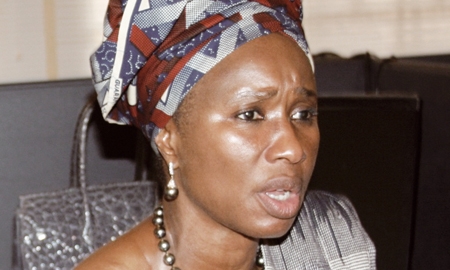
Nigeria is an industrial diamond in the rough. It has a wealth of natural resources and no dearth of willpower, yet what it lacks to date is the infrastructure and means to transform the industrial sector
The Central Bank along with microfinance and development institutions such as the Bank of Industry (BOI), are increasing the number of relevant financial instruments and facilitating their access to a wider public in an effort to further industrialise Nigeria.
Evelyn Oputu, Managing Director of BOI, says, “Nigeria has all it takes to become an industrial hub. In terms of our natural resource base – whether it is land, water, population or level of education – everything that is necessary to revolutionise the country exists here. The next thing we need to do is get policymakers in position to actually translate all of these resources into the final products that we need. Thankfully, we have the right people in place, and I believe we have already passed the threshold because the policy changes have already started. We can see it happening at the moment.”
She goes on to say that what is still missing is greater technology and knowledge, which have the power to move Nigeria ahead by leaps and bounds. “We are looking to tap into it, to be able to fast-track and bypass the traditional processes of development. The knowledge industry changes the whole process,” she says.
ICT is already in use in certain areas, such as in agriculture. Thanks to mobile technology, farmers can access input products by phone, for example, yet this is only the tip of the potential iceberg. “I cannot even begin to imagine how Nigeria would be transformed with the kind of knowledge industry the Germans have,” claims Mrs Oputu.
One of the most important things institutions like BOI are doing is creating an enabling environment and making funding available for small and medium enterprises (SMEs) – heretofore a largely unbanked segment – through commercial banks so that they and the SMEs can form a working relationship without the unnecessarily exposed risk assets. “That way [the banks] could learn about the business volumes that could come from SMEs,” explains Mrs Oputu.
“Now the commercial banks have a better understanding. They also know that for the entire market structure to fit together, we also have to support the SMEs.”
Soon, the efforts of development financing institutions will be complemented by the government’s micro-finance development fund, which will be established this year. According to CBN Governor Sanusi, “the fund is designed to provide funding and refinancing opportunities. Many of [the people in rural areas] have the funding, but they do not have the ability to lend or access financial institutions.”
This fund will greatly help the agricultural sector to take off and become a more value added industry. “The time for exporting the raw commodity is over,” says Mrs Oputu. She highlights both agriculture and infrastructure as huge opportunities for investors.
“We keep looking for foreign investors who will put big companies in the centre of the entire process, with SMEs feeding them raw materials and small cooperatives feeding the SMEs. This is the model we want,” she explains. “We are looking for these foreign investors who will add value in terms of quality assurance and transfer of technology.”
The latter is of utmost importance, she stresses, adding: “We really do not need nor do we want handouts. We want to be given the tools and the technology and learn how to do it for ourselves.”
Having skilled workers is also a priority for the CBN, who has set up three entrepreneurship centres, which in turn are linked to microfinance institutions. Applicants who successfully pass a highly selective process, are trained in entrepreneurship skills and given access to financing. “We set all of this up in advance, so he has the skills, the finance and a network,” explains Mr Sanusi.
0 COMMENTS